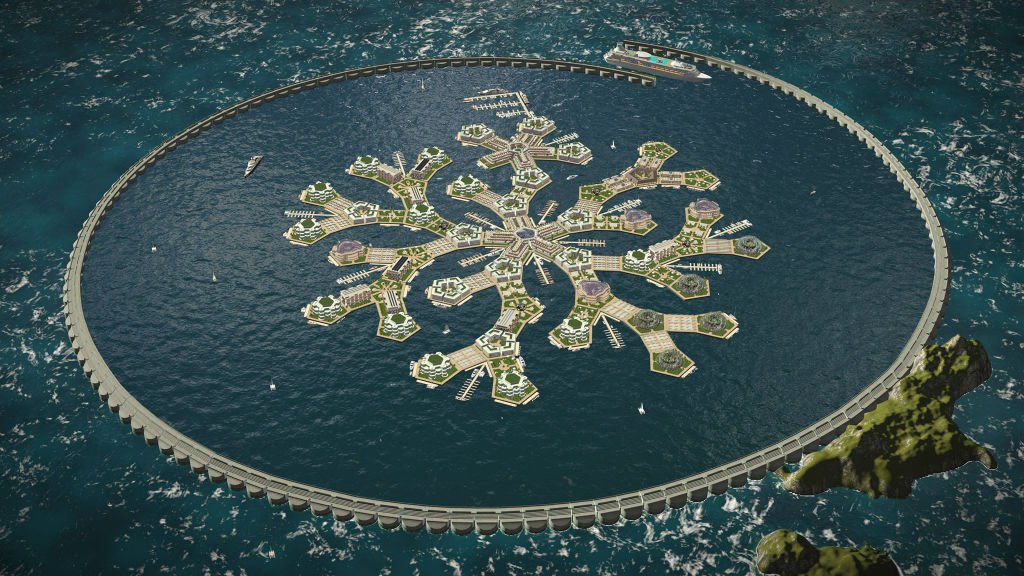Company reveals ambitious plans to build world’s first floating city in the Pacific Ocean
01/26/2017 / By Mary Wilder

The past few years have left people all over the world concerned about the future of our planet. While there are those who believe that culture has its ups and downs and that the pendulum always swings back and forth, there are those who believe that we have reached the point of no return and that it is only a matter of time before the world as we know it has been completely destroyed.
This fringe idea seems to be picking up more and more steam as environmental issues across the world become more and more obvious. What once appeared to be an idea that existed solely in the minds of conspiracy theorists has since become extremely common as the visible effects of our lack of respect for the environment have manifested themselves all over the globe. As a result, people who never would have been contemplating the end of the world as we know it are now at the front lines of these conversations, discussing what should come next.
One of the more interesting developments in recent months has been the government of French Polynesia announcing their plans to potentially create a floating city should ocean levels continue to rise. Since a majority of the land could very soon be submerged by the sea, this is an extremely good idea and one that many countries across the world should be paying close attention to because it actually makes a whole lot of sense.
(RELATED: Learn more about the potential of a societal collapse by visiting Collapse.news)
In charge of researching and developing the floating city is the Seasteading Institute, who believes that in addition to the environmental factors that it will improve, the city will also promote growth in the technological and economic sectors. It could be a win-win for everyone involved.
Get more news like this without being censored: Get the Natural News app for your mobile devices. Enjoy uncensored news, lab test results, videos, podcasts and more. Bypass all the unfair censorship by Google, Facebook, YouTube and Twitter. Get your daily news and videos directly from the source! Download here.
Bec Crew of Science Alert reports, “According to Seasteading executive director, Randolph Hencken, the plan would not only save locals from islands like Tahiti — the most populous island in the French Polynesian collective — from having to flee their sinking homes in the coming decades, it would also offer a unique tourist experience to help bolster them economically.”
Though the plans still have to go through the legislation process, if they are passed, construction of the city could begin as soon as 2019, so future societies may be coming sooner than we ever would have thought. While this creation specifically helps French Polynesia, we could be seeing these kinds of floating cities all over the world in areas that are surrounded by water.
That’s not where the potential for this type of futuristic society ends, though. Given the various environmental hazards we are facing in 2017, there are likely people in the United States that are planning ways to create sustainable societies throughout our country. This is most definitely a good idea because, as history has proven time and time again, the unpredictable is always right around the corner.
Hopefully the Trump administration starts paying close attention to environmental issues before it is too late. While adding endless regulations definitely isn’t what any of us need, investing in sustainable living — like the government in French Polynesia has done — could only benefit us. It certainly makes a lot more sense than paying for the cell phone bills of the laziest members of our society, which is what has been happening under the rule of the Obama administration…
Sources:
(photo courtesy of The Seasteading Institute)
Tagged Under: floating city, future, technology




















